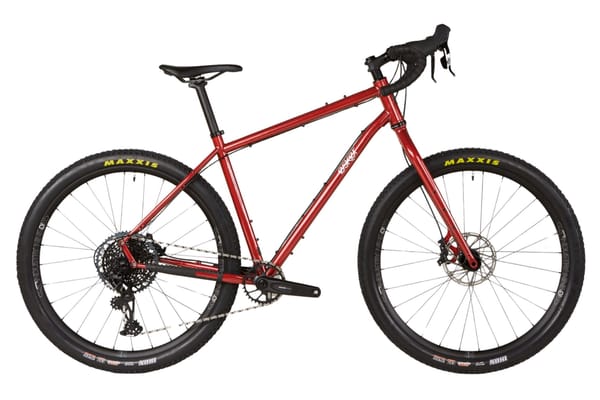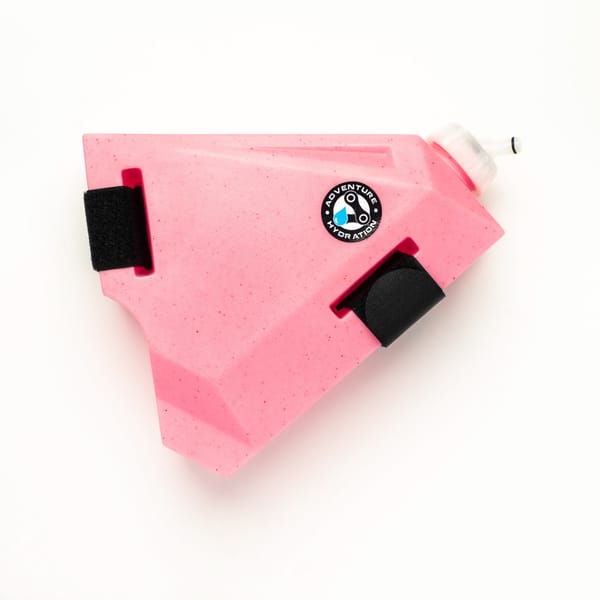Gear & Grit Daily: November 21, 2025
Today's cycling news: Why aren’t London’s lethal junctions being fixed faster? Transport chiefs happy with “acceptable” number of crashes to avoid impacting ...

Welcome to today's Gear & Grit, where the contrast couldn't be starker: while London's transport officials apparently find a "acceptable number" of cyclist deaths preferable to delayed buses, Wout van Aert is plotting nothing less than a revolution to save pro cycling's broken business model.
Today we're diving deep into the disconnect—between advocacy and apathy, between innovation and bureaucratic inertia. From lethal junctions that remain unfixed to star-spangled solutions for the sport's financial crisis, plus the science of what makes world-class cyclists truly superhuman. Buckle up.
⚡ Quick Hits
- [UPDATE] “Falls will always happen”: Lidl-Trek manager urges cycling to "invest tonnes of money in airbag systems" to boost rider safety; Cycling fans react to Israel-Premier Tech’s rebrand to NSN Cycling + more on the live blog: Lidl-Trek manager advocates for airbag system investment; Israel-Premier Tech rebrands to NSN Cycling.
- [UPDATE] Who or what is NSN, cycling's newest WorldTour sponsor?: Israel-Premier Tech rebrands as NSN for 2026 WorldTour season with new identity.
- Trek pledges to dole out over a million dollars in store credit to customers, after almost 80,000 bikes recalled due to brake defect: Trek recalls 80,000 bikes for brake defects, offers $1M in store credit.
- ‘Israel out of the Tour’ protester who disrupted Tour de France finish escapes with warning and suspended fine after telling court: “The idea was to get people talking about Gaza”: Protester disrupts Tour de France finish over Gaza; court issues suspended fine and warning.
- Industry Veteran Ben Pickel Joins SHIFT Events as Chief Revenue and Marketing Officer: SHIFT Events appoints industry veteran Ben Pickel as Chief Revenue and Marketing Officer.
- Starling Moves Some of its Production to the EU: Starling Cycles relocates core production to Czech Republic while maintaining UK operations.
- Echoes of the West End – Gregg Dunham: Filmmaker explores Grand Loop bikepacking route and discovers community stories in Colorado's West End.
- Cycling’s Best Nicknames Are MIA: Why Racing’s Lost Art Needs a Revival: Analysis of declining nickname tradition among modern pro cyclists compared to cycling's storied past.
📊 By The Numbers
- 51: Serious cyclist injuries at London's ten most dangerous junctions (2020-2024)
- 7%: Canyon's year-over-year sales drop in first nine months of 2025
- 80,000: Trek bikes recalled due to brake defect safety issues
📰 Today's Big Stories
[UPDATE] Why aren’t London’s lethal junctions being fixed faster? Transport chiefs happy with “acceptable” number of crashes to avoid impacting bus times, cycling campaigners say – as “people keep dying”
London's Deadly Junctions Remain Unfixed
The London Cycling Campaign has identified ten junctions responsible for four cyclist deaths and 51 serious injuries between 2020-2024—yet Transport for London appears reluctant to implement safety improvements. Campaigners claim officials are accepting an "acceptable" crash rate to avoid disrupting bus schedules, prioritizing vehicle flow over cyclist safety.
Why It Matters: This reveals a troubling hierarchy in urban transport planning where cyclist lives take a backseat to maintaining motor vehicle throughput. Despite Vision Zero commitments, the data suggests London is tolerating preventable deaths at known danger spots. If you're riding in the capital—or any major city—this underscores the need to stay hyper-vigilant at complex junctions and support advocacy groups pushing for infrastructure changes. The message is clear: authorities know where cyclists are dying, but political will to fix it remains insufficient.
Wout van Aert Has a Star-Spangled Plan That Might Save Pro Cycling
Van Aert Pitches American Makeover for Pro Cycling
Belgian star Wout van Aert is calling for a radical restructuring of professional cycling, advocating for an NBA-style financial model with increased American investment and team ownership. His vision includes an expanded North American race calendar that would give the sport a more stable economic foundation beyond its traditional European base.
Why it matters: Pro cycling's current financial model is notoriously unstable, with teams scrambling for sponsors annually and riders facing uncertain futures. Van Aert's proposal could bring the deep-pocketed stability of American sports franchises to the peloton, potentially meaning better pay, longer team commitments, and more predictable careers for riders. For fans, more US races could make the sport more accessible stateside while diversifying cycling's geographic footprint beyond Europe's spring classics and Grand Tours.
[UPDATE] Two bike suppliers, one team: IPT’s 2026 bike deal remains a mess
IPT's Bike Supplier Drama Continues
Israel-Premier Tech's equipment situation for 2026 remains in limbo. Despite reports suggesting a switch to Scott bikes, the team's bike supplier arrangement is still uncertain—creating an unusual scenario where two manufacturers may be involved with one squad.
This matters because equipment instability signals deeper team issues. For a WorldTour squad, locked-in supplier deals are standard operating procedure, typically finalized well in advance. The ongoing uncertainty raises questions about IPT's organizational health and sponsor relationships heading into 2026. It also affects rider recruitment and retention—pros want to know what they'll be racing on. For fans and aspiring racers watching equipment choices, this mess is a reminder that even top-tier teams can struggle with basic logistics when business relationships fracture.
Canyon sales drop 7% amid 'oversupply and aggressive discounting'
Canyon Feels the Pinch as Industry Slump Continues
Canyon's sales dropped 7% in the first nine months of 2025, with the direct-to-consumer brand citing market oversupply and aggressive discounting as key factors. The German manufacturer joins a growing list of bike companies reporting weak earnings as the industry continues wrestling with post-pandemic inventory hangover.
Why it matters: This isn't just corporate drama—it directly affects your wallet and options. Oversupply means deep discounts continue across the market, making it a buyer's paradise if you've been eyeing new gear. But it also signals potential consolidation ahead, with weaker brands possibly exiting or being acquired. For Canyon specifically, financial pressure could impact their innovation pipeline and customer service investments. Bottom line: great time to buy, but the industry shake-up may reshape your favorite brands in the coming years.
[UPDATE] From ‘no surrender’ to NSN: Barcelona legend Andrés Iniesta’s company takes over Sylvan Adams’ Israel project – but what’s next for cycling’s most controversial team?
Iniesta Takes the Wheel at Cycling's Most Divisive Team
Israel-Premier Tech is no more. The WorldTour squad has rebranded as NSN Cycling Team for 2026, now operating under a Swiss license and Spanish base. The takeover comes from Barcelona legend Andrés Iniesta's company, marking a dramatic shift from Israeli billionaire Sylvan Adams' controversial ownership that sparked years of race protests and boycott calls.
Why It Matters: This could be cycling's biggest rebrand gamble. The team faced relentless scrutiny over its Israeli ties, with protesters disrupting races and some riders refusing to compete against them. Whether a new name, license, and ownership structure will silence critics remains uncertain—the underlying questions about sports-washing and political sponsorship in cycling aren't going away. For riders, sponsors, and race organizers, NSN's reception in 2026 will test whether a fresh coat of paint can truly erase a contentious legacy.
🎙️ Fresh Ears
- Unlocking Endurance: Brain Fatigue and Neuroplasticity with Scott Frey: Neuroscientist explores brain fatigue and neuroplasticity's role in endurance cycling performance.
- UNREAL STRENGTH OF WORLD-CLASS TRACK CYCLISTS | Anders Johnson | Ask a Cycling Coach Podcast 560: Elite track cyclist Anders Johnson discusses pursuit racing physiology, training methods, and Olympic qualification requirements.
- 398: Creating Nutritional Training Plans, with MetPro’s Angelo Poli: Podcast episode on applying structured training principles to nutritional planning for cyclists.
📺 Watch List
- Best Breakfast For Riding? ✅: Comparison of two breakfast options for cycling performance and energy levels.





